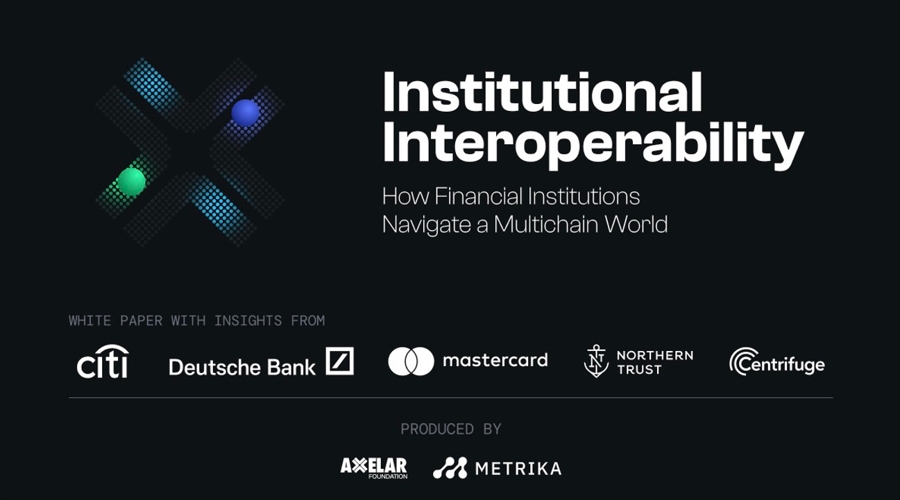Blockchain Interoperability as Critical to Asset Tokenization
An institutional professional report explored the path to secure, multi-chain interoperability for asset tokenisation across public blockchains, private blockchains and legacy systems.

A report jointly produced by the Axelar Foundation and Metrika, featuring insights from Citi, Deutsche Bank, Mastercard, Northern Trust, and Centrifuge, delves into the secure, multi-chain interoperability pathways for asset tokenization across public blockchains, private blockchains, and traditional systems.
Titled "Institutional Interoperability: Navigating Financial Institutions in a Multi-Chain World," the report emphasizes achieving higher accessibility and liquidity for asset tokenization while maintaining flexibility, privacy, transparency, and scalability.
Asset tokenization represents on-chain representations of financial assets such as real estate, currencies, and securities. A recent report by Boston Consulting Group and market operator ADDX predicts that the market value of asset tokenization will reach trillions of dollars within the next decade. All participating institutions in the report underscore the need for a network model that integrates multiple blockchains and traditional systems to realize this potential.
Financial institutions like Citi, Deutsche Bank, Mastercard, and Northern Trust provide key insights in the report, covering descriptions of their involvement in asset tokenization projects, the implementation of multiple blockchains, and potential requirements and challenges of blockchain interoperability. Web3 native innovators such as the Axelar Foundation, Centrifuge, and Metrika also contribute to the report.
Serving as a roadmap for financial institutions to develop asset tokenization opportunities, the report faces stringent requirements from both public and private blockchains as well as from clients and regulatory bodies. The report's author, blockchain analyst Emily Parker, bases it on the Monetary Authority of Singapore's 2023 "Guardians Programme" framework.
Georgios Vlachos, Director of the Axelar Foundation and Co-founder of the Axelar Protocol, states, "Asset tokenization inherently possesses interoperability by design, connecting assets recorded off-chain to on-chain representations. The challenge lies not in facilitating one connection, but in enabling connections across thousands of cross-chains and off-chain ledgers in a secure, scalable, and open manner."
Anand Rengarajan, Global Head of Corporate Bank Sales and Head of Securities Services for Asia Pacific at Deutsche Bank, says, "For securities services providers, multi-chain asset interoperability and services are likely to become a necessary condition as their clients adopt different chains."
Alvin Chia, Head of Digital Asset Innovation for Asia Pacific at Northern Trust, notes, "Northern Trust is preparing for significant growth in on-chain tokenization of assets within its custody."
Bhaji Illuminati, Chief Marketing Officer of Centrifuge, adds, "Asset tokenization brings significant advantages in terms of access and liquidity, and through modular, multi-chain architectures, can greatly enhance visibility and on-chain utility."
Nikos Andrikogiannopoulos, Founder and CEO of Metrika, emphasizes, "Effective risk management and continuous monitoring ensure that these digital assets seamlessly, reliably, and securely integrate into existing financial systems, fostering confidence, accessibility, liquidity, and innovation."
Disclaimer: The views in this article are from the original Creator and do not represent the views or position of Hawk Insight. The content of the article is for reference, communication and learning only, and does not constitute investment advice. If it involves copyright issues, please contact us for deletion.